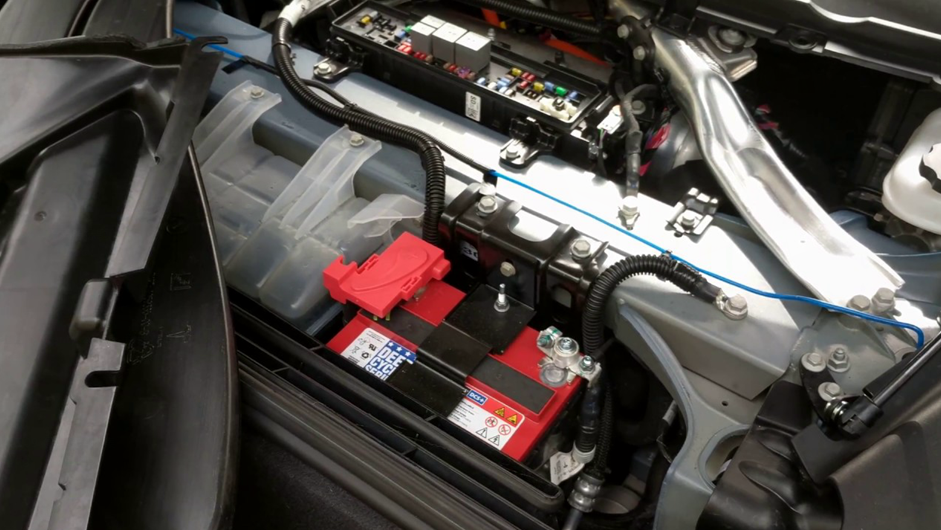Revolutionizing the Energy Industry: The Impact of Smart Grids and Lithium Batteries
In recent years, there has been a growing concern about the need to transition towards cleaner and more sustainable sources of energy. With the increasing demand for electricity and the urgency to reduce greenhouse gas emissions, the energy industry has been forced to explore new technologies and innovations. Two of the most promising advancements that are revolutionizing the energy industry are smart grids and lithium batteries.
Smart grids are a modernized version of the traditional electrical grid system. They incorporate advanced communication and automation technologies to optimize the generation, distribution, and consumption of electricity. By utilizing a network of sensors, meters, and control devices, smart grids enable real-time monitoring and management of energy flow. This allows for better coordination between power plants, renewable energy sources, and consumers, resulting in improved efficiency and reliability.
One of the key benefits of smart grids is their ability to integrate renewable energy sources into the grid. Traditional grids were designed to accommodate centralized power plants that rely on fossil fuels. However, with the increasing adoption of solar and wind energy, the generation of electricity is becoming more decentralized. Smart grids are capable of handling the variability and intermittency of renewable energy sources by dynamically adjusting the distribution and consumption of electricity. This not only reduces reliance on fossil fuels but also promotes the use of clean energy.
Lithium batteries, on the other hand, have emerged as a game-changer in the energy storage sector. Lithium-ion batteries, in particular, have gained popularity due to their high energy density, long cycle life, and fast charging capabilities. These batteries are widely used in portable electronic devices, electric vehicles, and now, in grid-scale energy storage systems.
The integration of lithium batteries into the energy industry has several advantages. Firstly, it enables better utilization of renewable energy. Energy generated from solar panels or wind turbines can be stored in lithium batteries during periods of low demand and released during peak hours. This reduces the need for backup power plants fueled by fossil fuels and allows for a more efficient use of clean energy.
Secondly, lithium batteries enhance grid stability and reliability. They provide a reliable source of power during blackouts or grid failures, ensuring uninterrupted electricity supply to critical infrastructure and residential areas. Additionally, they help balance the supply and demand of electricity, reducing the risk of power outages and grid instability.
Furthermore, lithium batteries facilitate the electrification of transportation. As the world moves towards a greener future, the demand for electric vehicles is increasing rapidly. Lithium batteries enable long-range driving, fast charging, and improved performance of electric vehicles, making them a viable alternative to traditional internal combustion engine vehicles. This not only reduces greenhouse gas emissions but also decreases our dependence on fossil fuels.
Despite these numerous benefits, there are still challenges that need to be addressed for the widespread adoption of smart grids and lithium batteries. One major hurdle is the cost. While the prices of lithium batteries have been decreasing steadily, they still remain relatively expensive compared to traditional energy storage options. Additionally, the installation and infrastructure costs associated with smart grids can be significant.

Another challenge is the need for regulations and policies that support the integration of these technologies. Governments and regulatory bodies need to incentivize the deployment of smart grids and lithium batteries through financial incentives and favorable policies. This will encourage investment in research and development, promote innovation, and accelerate the transition towards a cleaner and more sustainable energy future.
In conclusion, smart grids and lithium batteries are revolutionizing the energy industry by enabling the integration of renewable energy sources, enhancing grid stability, and promoting the electrification of transportation. While there are challenges to overcome, the potential benefits are significant. With continued advancements in technology, increased investment, and supportive policies, smart grids and lithium batteries have the power to reshape the energy landscape and pave the way towards a more sustainable future.
-
 تعد بطارية LiFePO4 48V واحدة من أكثر حلول تخزين الطاقة تقدمًا المتوفرة في السوق. بفضل سعة الطاقة طويلة الأمد والأداء المتفوق ، أصبحت هذه البطارية ذات شعبية متزايدة في التطبيقات الصناعية والتجارية والسكنية. يتم تصنيع بطاريات LiFePO4 باستخدام تقنية فوسفات حديد الليثيوم المتقدمة ، والمعروفة بكثافة الطاقة العالية ، وانخفاض معدل التفريغ الذاتي ، و ...اقرأ أكثر
تعد بطارية LiFePO4 48V واحدة من أكثر حلول تخزين الطاقة تقدمًا المتوفرة في السوق. بفضل سعة الطاقة طويلة الأمد والأداء المتفوق ، أصبحت هذه البطارية ذات شعبية متزايدة في التطبيقات الصناعية والتجارية والسكنية. يتم تصنيع بطاريات LiFePO4 باستخدام تقنية فوسفات حديد الليثيوم المتقدمة ، والمعروفة بكثافة الطاقة العالية ، وانخفاض معدل التفريغ الذاتي ، و ...اقرأ أكثر -
 In today's world, energy is everything. We use it to power our homes, our cars, and even our phones. However, the sources of energy we rely on are not always reliable or environmentally-friendly. That's why more and more people are turning to alternative forms of energy, such as lithium iron phosphate (LiFePO4) batteries. LiFePO4 batteries are a type of...اقرأ أكثر
In today's world, energy is everything. We use it to power our homes, our cars, and even our phones. However, the sources of energy we rely on are not always reliable or environmentally-friendly. That's why more and more people are turning to alternative forms of energy, such as lithium iron phosphate (LiFePO4) batteries. LiFePO4 batteries are a type of...اقرأ أكثر -
 Introduction: In recent years, the world has witnessed a growing demand for electric vehicles as a means to reduce carbon emissions and combat climate change. Responding to this need, an innovative electric dirt bike powered by advanced lithium battery technology has emerged as a game-changer in the transportation industry. This article aims to explore the features and benefits of this...اقرأ أكثر
Introduction: In recent years, the world has witnessed a growing demand for electric vehicles as a means to reduce carbon emissions and combat climate change. Responding to this need, an innovative electric dirt bike powered by advanced lithium battery technology has emerged as a game-changer in the transportation industry. This article aims to explore the features and benefits of this...اقرأ أكثر -
 In today's world, uninterrupted power supply is of utmost importance for both domestic and industrial usage. A power outage can cause major disruptions in daily life or even lead to significant financial loss in industries. Hence, the need for a reliable and efficient on-board battery charger that can provide uninterrupted power supply is paramount. One such device that is...اقرأ أكثر
In today's world, uninterrupted power supply is of utmost importance for both domestic and industrial usage. A power outage can cause major disruptions in daily life or even lead to significant financial loss in industries. Hence, the need for a reliable and efficient on-board battery charger that can provide uninterrupted power supply is paramount. One such device that is...اقرأ أكثر -
 In today\'s world, power supply is an essential part of our lives. Whether we are using electronic devices at home or in our offices or working in remote areas, we need a reliable source of power that can provide long-lasting support. This is where the LiFePO4 battery comes into play. It is a highly efficient and reliable battery that can...اقرأ أكثر
In today\'s world, power supply is an essential part of our lives. Whether we are using electronic devices at home or in our offices or working in remote areas, we need a reliable source of power that can provide long-lasting support. This is where the LiFePO4 battery comes into play. It is a highly efficient and reliable battery that can...اقرأ أكثر -
 Introduction In recent years, the demand for security monitoring systems has drastically increased due to rising concerns about safety and surveillance. Traditional security monitoring systems relied heavily on wired connections, making them susceptible to power outages and damage to the infrastructure. However, with the advancements in lithium battery technology, security monitoring systems can now be enhanced to provide uninterrupted...اقرأ أكثر
Introduction In recent years, the demand for security monitoring systems has drastically increased due to rising concerns about safety and surveillance. Traditional security monitoring systems relied heavily on wired connections, making them susceptible to power outages and damage to the infrastructure. However, with the advancements in lithium battery technology, security monitoring systems can now be enhanced to provide uninterrupted...اقرأ أكثر -
 In recent years, there has been a significant shift towards electric vehicles (EVs) as the world seeks cleaner and more sustainable transportation options. As the demand for EVs continues to rise, it has become increasingly important to develop advanced battery technologies to power these vehicles. One such technology that is gaining attention is the lithium van battery, which holds great...اقرأ أكثر
In recent years, there has been a significant shift towards electric vehicles (EVs) as the world seeks cleaner and more sustainable transportation options. As the demand for EVs continues to rise, it has become increasingly important to develop advanced battery technologies to power these vehicles. One such technology that is gaining attention is the lithium van battery, which holds great...اقرأ أكثر

